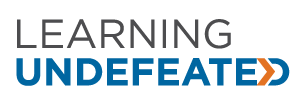Inside a 45-foot mobile science laboratory, Arlington Heights Elementary students are building reading and engineering skills today thanks to a blended new curriculum designed by nonprofit Learning Undefeated. Arlington Heights is the first of ten Baltimore schools to participate in this new program, which is part of the Baltimore Library Project.
Built around favorite and modern children’s storybooks like Jack and the Beanstalk and Goldilocks and the Three Bears, activities taught onboard the mobile lab promote reading and literacy while bringing hands-on engineering design activities right to the school parking lot. Learning Undefeated is a new partner in the Baltimore Library Project, a multi-year effort to transform Baltimore City Public School libraries in neighborhoods where many students face academic and economic challenges.
All lessons begin with a reading exploration and an engineering activity tied a storybook concept. In the Three Little Pigs activity (based on the modern tale The True Story of the Three Little Pigs by Jon Scieszka) K-2 students are challenged to help rebuild the little pig’s neighborhood after a sneezing “wind” disaster caused by the big bad wolf. Students think like engineers as they help the pig’s eldest brother rebuild homes with constraints for time and budget, and extra points awarded if the homes withstand “wind” from a fan for at least five seconds. Other books included in the program include new favorites like Finding My Dance by Ria Thunderbird and What If There Were No Bees by Suzanne Slade.
The program promotes a holistic integration of reading and literacy with science, technology, engineering and math (STEM). Topics range from circuits to biomimicry, building a bottle rocket truck or an artificial pollinator in a lesson where students learn about the importance of bees in our ecosystem. Best known for immersive STEM education, Learning Undefeated’s new crossdisciplinarity K-8 initiative emphasizes a wide variety of critical skills including reading and even budgeting for ages as young as five. The eight-piece curriculum integrates new and favorite tales with both Next Generation Science Standards and Maryland College and Career Readiness standards.
This yearlong program, funded by The Harry and Jeanette Weinberg Foundation, will visit ten Baltimore City schools including Harford Heights EMS, Thomas Johnson Elementary, Francis Scott Key MS, and Moravia Park Elementary. A new activity is being specifically designed for students at The Maryland School for the Blind, which will receive a mobile laboratory visit this fall.






